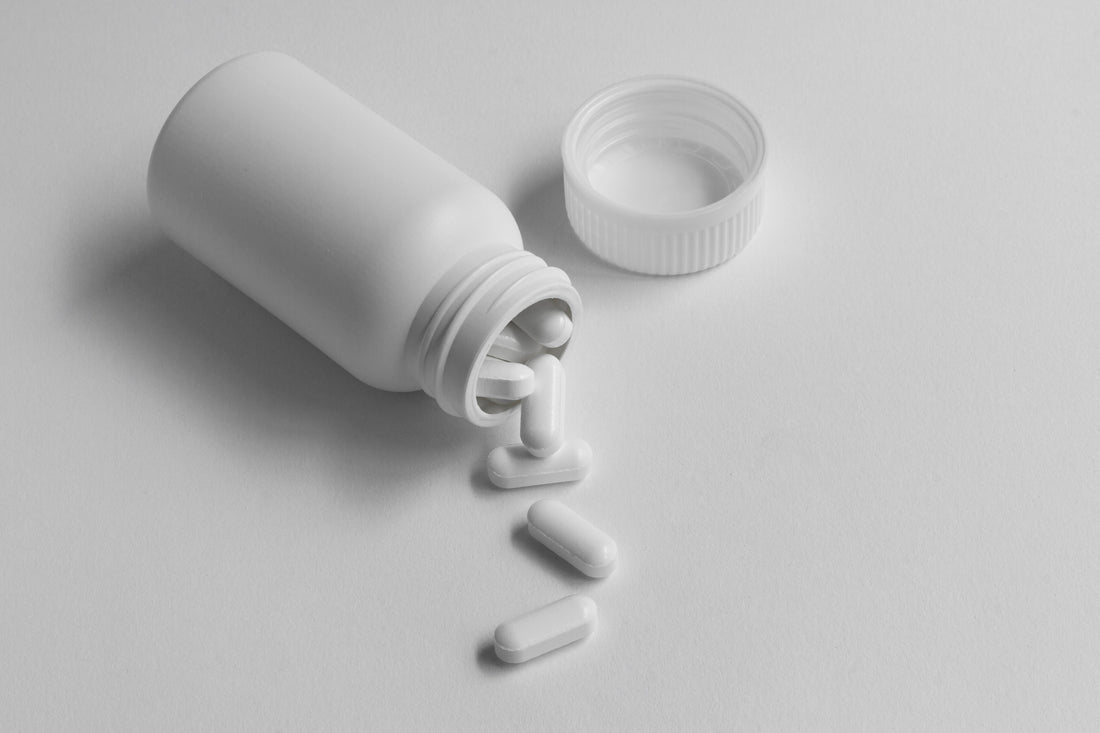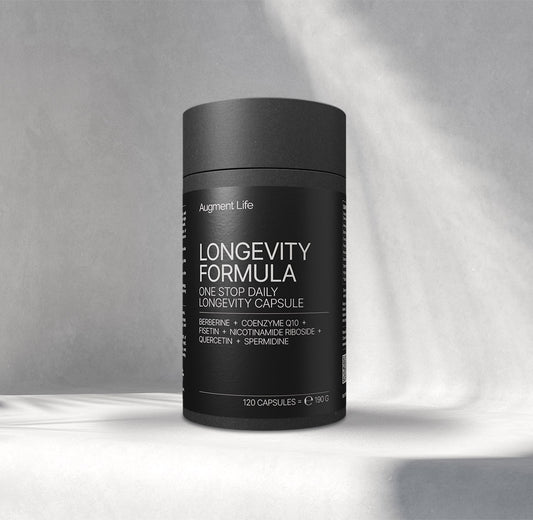Spermidine is just one of the polyamines that occur naturally in almost all living cells, and is gradually coming into the limelight of nutrition and longevity research. Spermidine plays a critical function in many biological actions that can contribute to human health and even possibly to enhance potential lifespan.
This article looks at the health benefits of spermidine, dosage, and potential side effects of supplementation.
What is Spermidine?
Spermidine is an essential polyamine compound necessary for cellular growth, differentiation, and apoptosis or programmed cell death. First identified in human semen, spermidine occurs in many foods, such as:
- soybeans,
- mushrooms,
- aged cheese,
- wheat germ.
Spermidine is part of a broader group of compounds called polyamines, along with putrescine and spermine, which participate actively within cells and are a necessary component for health and longevity.1
Functions of Spermidine in the Body
Spermidine, being a polyamine is associated with many important biological events:2-3
- Cellular Metabolism: Spermidine assists in a range of metabolic activities, including that of nucleic acids (particularly in DNA and RNA synthesis). These processes are essential for cell division and repair hence promoting the health of cells and life in general.
- Autophagy: The most striking role of spermidine is that it induces autophagy – the process by which cells destroy and recover parts that have become damaged or nonfunctional. This is important in the expansion and restoration of cells, protecting it from most diseases that come with age. It has been also demonstrated that spermidine as an autophagy enhancer removes damaged and unnatural precursors, which improve cell health and contribute to prolonged life.
- Mitochondrial Function: Polyamines, particularly spermidine, have been shown to be a mitochondrial and cellular protector. Mitochondria are considered the powerhouses of cells and maintain energy output while sustaining the cell's overall activity.4
If you want to learn more about autophagy, read our article: "The Role of Autophagy in Health and Longevity".
Spermidine - Health Benefits
1. Longevity
A number of research studies show that spermidine may be associated with an extended lifespan. In a large cohort study that followed participants for ten years, researchers found a positive correlation between higher dietary spermidine intake and extended longevity. Higher intakes of dietary spermidine compared with lower intakes were strongly associated with a decreased risk of mortality.
Though how this mechanism acts is an active area of investigation, these data indicate that spermidine is an important molecule involved in healthy aging and longevity.5
2. Cardiovascular Health
New studies have identified a strong inverse correlation between dietary consumption of spermidine and the development of cardiovascular diseases, including heart failure.
Higher amounts of spermidine intake has been related to lower blood pressure, hence lower concentrations of biomarkers for heart diseases. Such evidence may suggest that intake of foods rich in spermidine could be protective to cardiovascular system and, thus, lower heart disease incidence.6
3. Neuroprotection and Cognitive Function
Spermidine has been shown to hold promise in improving brain function, particularly in elderly populations.
A specific study had looked into the effectiveness of spermidine supplementation in improving memory in elderly people at risk for Alzheimer's. In this randomized, double-blind controlled study, subjects received either a plant extract rich in spermidine or a placebo for three months.
The results showed participants who received spermidine had a moderate improvement in their memory performance than the placebo group. This suggests that spermidine may be beneficial for the older peoples' cognitive functions through some stimulating effects on the brain's neuromodulatory processes.7
4. Hair and Skin Health
Improvements in hair growth and overall hair health have been associated with spermidine. It has been shown that it can promote cell growth and prevent cell damage, thereby preventing hair loss and encouraging thicker, healthier hair growth.
Additionally, due to the role of spermidine in cellular health, skin health also improves, resulting to a younger appearance.8
Food Sources of Spermidine
Spermidine is present naturally in various foods, especially in plant-based sources. Here are some rich sources of spermidine:9
- Soy Products: Foods such as natto are high in spermidine, where every serving contains 9.7 grams of spermidine.
- Green Peas: Another source of this beneficial polyamine, with 9.1 mg of spermidine per 140 grams serving.
- Mushrooms: Specifically shiitake mushrooms, containing approximately 4.4 mg per 50 grams.
- Whole Grains: Contain differing quantities of spermidine.
- Broccoli: A cruciferous vegetable with notable spermidine content, around 3.6 mg per 100 grams .
- Aged Cheeses: Such as cheddar and parmesan, contain high levels of spermidine with 2 mg/serving.
Adding spermidine-rich foods to your diet is also a natural way to increase spermidine levels.
Spermidine - Recommended Dosage
Currently, no official recommended daily intake exists for spermidine, as it is in an early stage of research. However, the European Union's Food and Safety Authority recommends not exceeding a daily dosage of 6 mg.10 This guideline helps to ensure prevention of potential side effects and ensures safe consumption levels.
Although food sources of spermidine seem to offer sufficient dietary intakes, people who want to get even higher amounts or have specific health concerns might find supplementation a good idea.
Before adding a new supplement, however, a healthcare professional should be consulted to determine the appropriate dose and whether it can be combined with your existing medications.
Spermidine - Side Effects
Spermidine is deemed generally safe when it is consumed at amounts commonly found in food. To date, there is no indication that spermidine supplementation causes any major side effects.11 However, like any other supplement, precautions should be observed, especially for high doses.
Other possible adverse effects (though incredibly rare) may include gastrointestinal upset, with symptoms of bloating or nausea, in some individuals. It is best to monitor one's physiological reaction when starting on any dietary supplement, and one should change the dosage or discontinue use if there are negative effects.
Final Words
Spermidine, although not as widely recognized as other nutrients, presents considerable potential for the improvement of health. Its functions in cellular metabolism, autophagy, and mitochondrial activity emphasize its critical role in sustaining overall health and potentially increasing lifespan.
The positive relationships of spermidine with aging, cardiovascular health, cognitive function, and hair and skin health also position it as an interesting nutrient worthy of continuous research.
References:
- Bardócz, S., Duguid, T. J., Brown, D. S., Grant, G., Pusztai, A., White, A., & Ralph, A. (1995). The importance of dietary polyamines in cell regeneration and growth. The British journal of nutrition, 73(6), 819–828. https://doi.org/10.1079/bjn19950087.
- Igarashi, K., & Kashiwagi, K. (2010). Modulation of cellular function by polyamines. The international journal of biochemistry & cell biology, 42(1), 39–51. https://doi.org/10.1016/j.biocel.2009.07.009.
- Pegg A. E. (2016). Functions of Polyamines in Mammals. The Journal of biological chemistry, 291(29), 14904–14912. https://doi.org/10.1074/jbc.R116.731661.
- Madeo, F., Eisenberg, T., Pietrocola, F., & Kroemer, G. (2018). Spermidine in health and disease. Science (New York, N.Y.), 359(6374), eaan2788. https://doi.org/10.1126/science.aan2788.
- Kiechl, S., Pechlaner, R., Willeit, P., Notdurfter, M., Paulweber, B., Willeit, K., Werner, P., Ruckenstuhl, C., Iglseder, B., Weger, S., Mairhofer, B., Gartner, M., Kedenko, L., Chmelikova, M., Stekovic, S., Stuppner, H., Oberhollenzer, F., Kroemer, G., Mayr, M., . . . Willeit, J. (2018). Higher spermidine intake is linked to lower mortality: a prospective population-based study. American Journal of Clinical Nutrition, 108(2), 371–380. https://doi.org/10.1093/ajcn/nqy102.
- Eisenberg, T., Abdellatif, M., Schroeder, S., Primessnig, U., Stekovic, S., Pendl, T., Harger, A., Schipke, J., Zimmermann, A., Schmidt, A., Tong, M., Ruckenstuhl, C., Dammbrueck, C., Gross, A. S., Herbst, V., Magnes, C., Trausinger, G., Narath, S., Meinitzer, A., Hu, Z., … Madeo, F. (2016). Cardioprotection and lifespan extension by the natural polyamine spermidine. Nature medicine, 22(12), 1428–1438. https://doi.org/10.1038/nm.4222.
- Wirth, M., Benson, G., Schwarz, C., Köbe, T., Grittner, U., Schmitz, D., Sigrist, S. J., Bohlken, J., Stekovic, S., Madeo, F., & Flöel, A. (2018). The effect of spermidine on memory performance in older adults at risk for dementia: A randomized controlled trial. Cortex; a journal devoted to the study of the nervous system and behavior, 109, 181–188. https://doi.org/10.1016/j.cortex.2018.09.014.
- Ramot, Y., Tiede, S., Bíró, T., Abu Bakar, M. H., Sugawara, K., Philpott, M. P., Harrison, W., Pietilä, M., & Paus, R. (2011). Spermidine promotes human hair growth and is a novel modulator of human epithelial stem cell functions. PloS one, 6(7), e22564. https://doi.org/10.1371/journal.pone.0022564.
- Atiya Ali, M., Poortvliet, E., Strömberg, R., & Yngve, A. (2011). Polyamines in foods: development of a food database. Food & nutrition research, 55, 10.3402/fnr.v55i0.5572. https://doi.org/10.3402/fnr.v55i0.5572.
- European Commission Notifications of Novel Foods under the Former Novel Food Regulation. [(accessed on 14 September 2024)]. Available online: https://ec.europa.eu/food/safety/novel_food/authorisations/list_authorisations_en.
- Schwarz, C., Stekovic, S., Wirth, M., Benson, G., Royer, P., Sigrist, S. J., Pieber, T., Dammbrueck, C., Magnes, C., Eisenberg, T., Pendl, T., Bohlken, J., Köbe, T., Madeo, F., & Flöel, A. (2018). Safety and tolerability of spermidine supplementation in mice and older adults with subjective cognitive decline. Aging, 10(1), 19–33. https://doi.org/10.18632/aging.101354.











